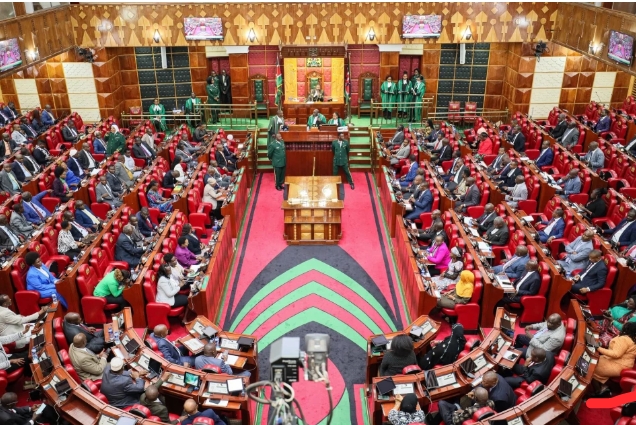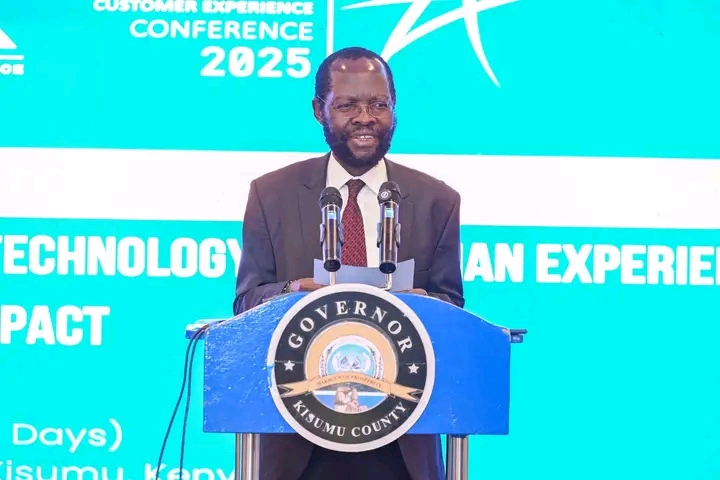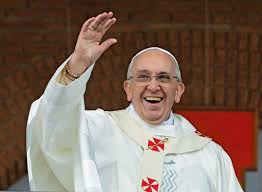Parliament sets up inquiry committee to probe kidney transplant scandal
An inquiry has been launched into Mediheal Hospital's alleged kidney trafficking scandal involving foreign nationals, poor Kenyan donors, and suspected ethical and legal violations in transplant procedures.
The National Assembly Health Committee has initiated an inquiry into the kidney transplant scandal that has rocked Mediheal Hospital in Eldoret. On Tuesday, the committees Chair, James Nyikal, made a public statement indicating that the purpose of the probe is to unearth the full extent of the alleged unethical and potentially criminal activities surrounding the hospitals transplant operations. The inquiry, according to Nyikal, will not only focus on the procedural aspects but also look deeply into possible breaches of legal and ethical standards guiding organ transplants in Kenya.
Nyikal emphasized that one of the main objectives of the inquiry is to evaluate the legality and ethical soundness of the transplant processes being carried out at Mediheal Hospital. Additionally, the committee intends to examine the suspected role of foreign nationals and the possibility of transplant tourism. He noted that there is growing concern over whether these procedures were conducted within the framework of the law or if they were facilitated through loopholes in the current health regulations. Nyikal further stated that part of the committee’s mandate is to identify these gaps in the system that may have allowed such activities to occur unnoticed for an extended period.
The committee has been given a period of 80 days to conduct thorough investigations and submit a detailed report of their findings. This report is expected to outline the legal, ethical, and procedural breaches, if any, and propose measures to prevent similar occurrences in the future.
This probe comes in the wake of damning revelations from a fact-finding mission carried out by a multidisciplinary team set up by the Ministry of Health. The team, composed of transplant specialists, medical ethicists, representatives from the Kenya Medical Practitioners and Dentists Council (KMPDC), the Kenya Blood Transfusion and Transplant Services (KBTTS), and officials from the Ministry of Health, conducted an audit at Mediheal Hospital between December 5 and December 8, 2023. However, despite the gravity of their findings, the report from this mission was never made public.
According to details that have since emerged, the team uncovered alarming indicators of possible organ trafficking operations involving foreign nationals. In a letter dated July 20, 2023, it was revealed that there had been a suspicious increase in the number of kidney transplants involving Israeli nationals in Kenya, raising red flags about the existence of a sophisticated international organ trafficking syndicate operating within the country. This syndicate appeared to be exploiting regulatory weaknesses to facilitate illegal organ transplants.
The scandal intensified when it was revealed that poor Kenyans were allegedly being paid approximately Ksh.294,000 to donate their kidneys, which were then sold to wealthy recipients, many of them foreign nationals, for as much as Ksh.3.2 million per transplant. These transactions point to a highly profitable and exploitative trade, targeting vulnerable populations for the benefit of wealthy patients from abroad.
While Mediheal Hospital is a licensed Level 5 private healthcare facility, the Ministry of Health’s investigative team noted several troubling irregularities. One of the key concerns was the lack of adequate donor-recipient verification. In many of the cases reviewed, the hospital failed to provide sufficient documentation proving that donors and recipients were biologically related or had any legitimate relational ties, especially in cases involving individuals from different countries. This raised questions about the authenticity of consent and whether coercion or financial incentives played a role in the decision to donate.
Interestingly, despite these irregularities, the hospital was praised for utilizing advanced surgical techniques, with 99% of its kidney transplant procedures being conducted laparoscopically. Additionally, Mediheal maintained consent records for all sampled donors, which suggests a degree of procedural compliance. However, these positives were overshadowed by the ethical and legal red flags raised by the audit.
In response to these developments, Health Cabinet Secretary (CS) Aden Duale took decisive action by suspending two senior Ministry officials—Dr. Maurice Wakwabubi, the acting head of KBTTS, and Dr. Everlyne Chege, the technical lead of the initial probe team. CS Duale stated that their suspension was necessary to avoid any potential conflict of interest during the ongoing investigations. He appointed Dr. Martin Sirengo, the Senior Deputy Director of Medical Services, to serve as the interim head of KBTTS.
As the investigation continues, public interest in the case remains high, with many calling for justice for the exploited donors and for tighter regulations to prevent such scandals in the future. The outcome of the inquiry committee’s report is expected to shape Kenya’s policies on organ donation and transplantation going forward.













